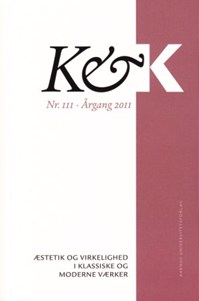Det perverse artefakt. Konflikt og erindringer i spanske tegneserier
DOI:
https://doi.org/10.7146/kok.v39i111.15758Nøgleord:
Cartoon series, memoirs, 2000-2010, civil war, Franco’s dictatorship, SpainResumé
THE PERVERSE ARTIFACT. CONFLICT AND MEMOIRS IN SPANISH CARTOON SERIES
Within the last 10 to 15 years, the Spanish debate about historical memory has gained much force, with a specific focus on memories of the Civil War (1936-39) and of the succeeding dictatorship that ended with a process of democratization at the end of the 1970s. Although the big Spanish political parties disagree on several memory related issues, they agree that the main objective is to secure a reconciliation of the Spanish population that – at least according to some parties, organisations and analysts – is still divided by the memories of the Civil War and the repressive Francoist dictatorship. Spanish comics from the end of the 1990s and the 2000s question the common and coherent narrative of the War and the dictatorship that is implied in this idea of reconciliation. This article offers an example of the ways in which the comics do this by activating two interconnected strategies. First, the comics destabilize place and narrative structure, and
secondly, they suggest that madness and a perverted gaze are the only sensible perspectives from which to contemplate Spain’s repressive and violent past. The analysis draws on the context of both the memory debate and the development within the Spanish and international comics field.
Downloads
Publiceret
Citation/Eksport
Nummer
Sektion
Licens
Tidsskriftet følger dansk ophavsret.





